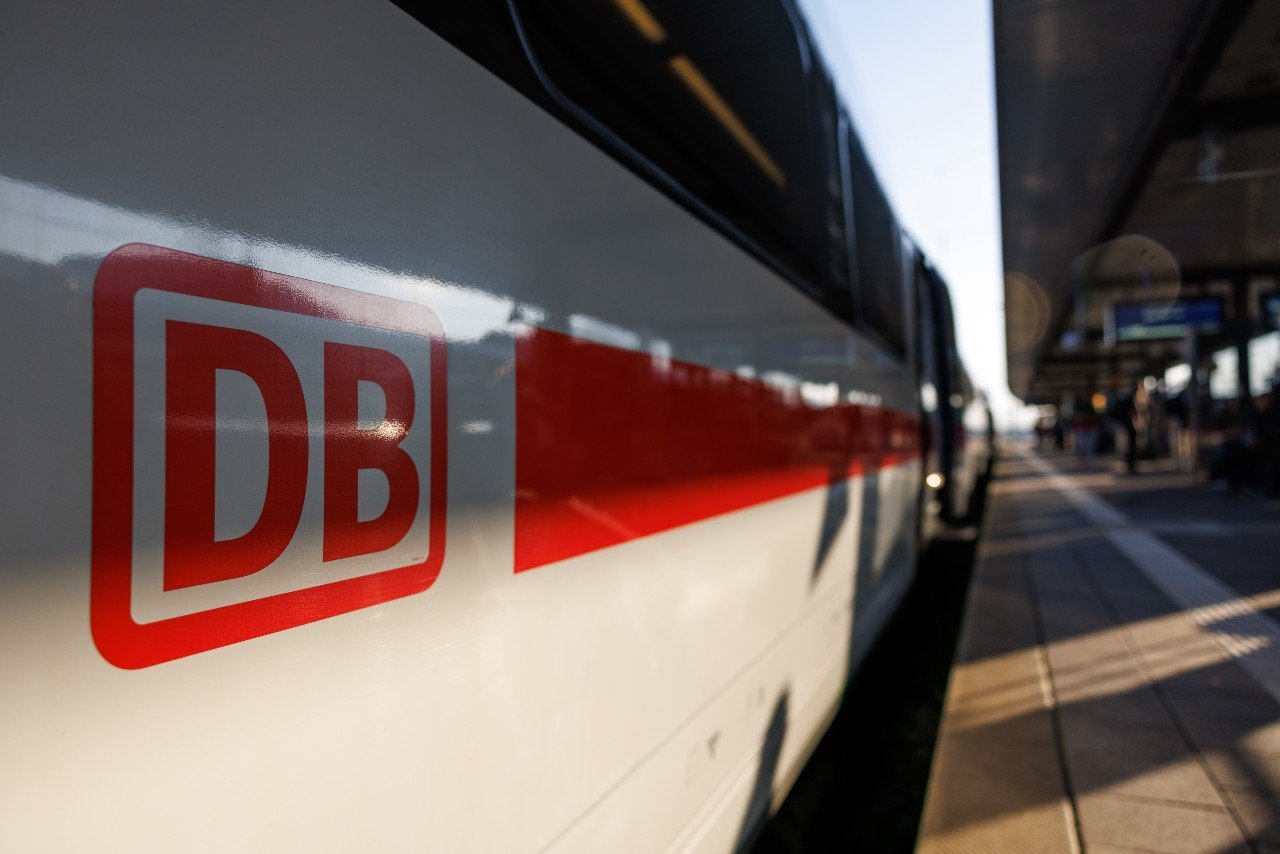German train drivers union announces strikes after 'failed' talks

The German train drivers union (GDL) on Friday announced that negotiations with Deutsche Bahn over pay and conditions had failed. So-called 'warning strikes' are expected to follow.
The bitter dispute on pay and conditions for rail workers took an even more dramatic turn on Friday as GDL chairman Claus Weselsky declared negotiations had collapsed.
The second round of talks with Deutsche Bahn took place in Berlin on Thursday and Friday morning but the two sides failed to make significant progress.
No compromises can currently be found with the employers, Weselsky said.
He announced that the union would once again call a national warning strike but did not specify exact dates.
The ballot among GDL members on indefinite strikes is still ongoing, with the results expected at the end of December.
If 75 percent of those taking part in the ballot agree to indefinite industrial action, the GDL will be able to put more pressure on Deutsche Bahn to agree to its demands by calling strikes with no pre-defined end date.
READ ALSO: German train drivers' union ballots members on unlimited strikes
The first round of collective bargaining began just a fortnight ago on November 9th.
The following week on Wednesday and Thursday, the GDL paralysed large parts of train services nationwide with a 20-hour warning strike.
As a result of the industrial action, a good 80 percent of the scheduled long-distance journeys were cancelled. The impact on regional transport was even greater in some federal states, where Deutsche Bahn runs the S-Bahn and regional train services.
Dispute over working hours
The main point of contention in the talks between the GDL and Deutsche Bahn has been the union's demand for shorter working hours.
The GDL is determined to secure in cut in working hours from 38 hours down to 35 per week, but DB HR manager Martin Seiler considers this unworkable and sees no room for negotiation.
Seiler says the change would be far too expensive and has argued that shorter rotas would require more employees - which would be particularly difficult to find in times of a shortage of skilled labour. GDL boss Weselsky, on the other hand, claims a shorter working week will make jobs at the railway more attractive.

A Deutsche Bahn ICE train in Nuremberg, Bavaria. Photo: picture alliance/dpa | Daniel Karmann
In addition to the reduction in working hours, the GDL is also demanding an increase of €555 per month and an inflation compensation bonus of €3,000 for employees. So far, Deutsche Bahn has offered an eleven per cent pay increase over a period of 32 months as well as the demanded inflation compensation bonus.
Another sticking point in talks has been the future of the GDL itself. The firebrand union wants to extend its sphere of influence at the railway and negotiate collective agreements for infrastructure workers as well, but the rail operator says the GDL has too few members who work in this area.
READ ALSO: Is Germany set for more train strikes in the weeks ahead?
Arbitration could offer a solution
The GDL has been trying to keep up the pressure on Deutsche Bahn since the beginning of the wage negotiations with regular threats of strike action and the ballot on unlimited strikes.
Weselsky's statement on Friday is the latest - and so far the largest - escalation in the dispute.
One way that weeks of travel chaos could potentially be avoid is if the two parties agree to allow third-party mediators to thrash out a deal on their behalf. This was the way the larger rail union, EVG, ultimately solved their dispute with Deutsche Bahn earlier this year.
However, Weselsky has previously rejected Deutsche Bahn's calls for an arbitration process and reiterated on Friday that he saw "no room" for mediation.
 Claus Weselsky of the GDL train drivers' union waits to give a statement in Berlin after the second round of negotiations with Deutsche Bahn. Photo: picture alliance/dpa | Christoph Soeder
Claus Weselsky of the GDL train drivers' union waits to give a statement in Berlin after the second round of negotiations with Deutsche Bahn. Photo: picture alliance/dpa | Christoph Soeder
According to the national rail operator, the collective agreements negotiated by the GDL apply to around 10,000 employees at Deutsche Bahn.
This makes it the much smaller employee representative body compared to EVG. In the spring and summer, the larger rail union negotiated a new agreement for around 180,000 DB employees.
However, because the GDL primarily represents train drivers and train attendants, it can cause major disruption to rail services when strikes are called.
Under its current chairman, the GDL is also known for taking a tough line in negotiations and being willing to stake walk-outs.
In some respite for passengers, however, the union has agreed to a truce on strikes over Christmas.
READ ALSO: German train drivers union rules out strikes over Christmas
Comments
See Also
The bitter dispute on pay and conditions for rail workers took an even more dramatic turn on Friday as GDL chairman Claus Weselsky declared negotiations had collapsed.
The second round of talks with Deutsche Bahn took place in Berlin on Thursday and Friday morning but the two sides failed to make significant progress.
No compromises can currently be found with the employers, Weselsky said.
He announced that the union would once again call a national warning strike but did not specify exact dates.
The ballot among GDL members on indefinite strikes is still ongoing, with the results expected at the end of December.
If 75 percent of those taking part in the ballot agree to indefinite industrial action, the GDL will be able to put more pressure on Deutsche Bahn to agree to its demands by calling strikes with no pre-defined end date.
READ ALSO: German train drivers' union ballots members on unlimited strikes
The first round of collective bargaining began just a fortnight ago on November 9th.
The following week on Wednesday and Thursday, the GDL paralysed large parts of train services nationwide with a 20-hour warning strike.
As a result of the industrial action, a good 80 percent of the scheduled long-distance journeys were cancelled. The impact on regional transport was even greater in some federal states, where Deutsche Bahn runs the S-Bahn and regional train services.
Dispute over working hours
The main point of contention in the talks between the GDL and Deutsche Bahn has been the union's demand for shorter working hours.
The GDL is determined to secure in cut in working hours from 38 hours down to 35 per week, but DB HR manager Martin Seiler considers this unworkable and sees no room for negotiation.
Seiler says the change would be far too expensive and has argued that shorter rotas would require more employees - which would be particularly difficult to find in times of a shortage of skilled labour. GDL boss Weselsky, on the other hand, claims a shorter working week will make jobs at the railway more attractive.

In addition to the reduction in working hours, the GDL is also demanding an increase of €555 per month and an inflation compensation bonus of €3,000 for employees. So far, Deutsche Bahn has offered an eleven per cent pay increase over a period of 32 months as well as the demanded inflation compensation bonus.
Another sticking point in talks has been the future of the GDL itself. The firebrand union wants to extend its sphere of influence at the railway and negotiate collective agreements for infrastructure workers as well, but the rail operator says the GDL has too few members who work in this area.
READ ALSO: Is Germany set for more train strikes in the weeks ahead?
Arbitration could offer a solution
The GDL has been trying to keep up the pressure on Deutsche Bahn since the beginning of the wage negotiations with regular threats of strike action and the ballot on unlimited strikes.
Weselsky's statement on Friday is the latest - and so far the largest - escalation in the dispute.
One way that weeks of travel chaos could potentially be avoid is if the two parties agree to allow third-party mediators to thrash out a deal on their behalf. This was the way the larger rail union, EVG, ultimately solved their dispute with Deutsche Bahn earlier this year.
However, Weselsky has previously rejected Deutsche Bahn's calls for an arbitration process and reiterated on Friday that he saw "no room" for mediation.

According to the national rail operator, the collective agreements negotiated by the GDL apply to around 10,000 employees at Deutsche Bahn.
This makes it the much smaller employee representative body compared to EVG. In the spring and summer, the larger rail union negotiated a new agreement for around 180,000 DB employees.
However, because the GDL primarily represents train drivers and train attendants, it can cause major disruption to rail services when strikes are called.
Under its current chairman, the GDL is also known for taking a tough line in negotiations and being willing to stake walk-outs.
In some respite for passengers, however, the union has agreed to a truce on strikes over Christmas.
READ ALSO: German train drivers union rules out strikes over Christmas
Join the conversation in our comments section below. Share your own views and experience and if you have a question or suggestion for our journalists then email us at [email protected].
Please keep comments civil, constructive and on topic – and make sure to read our terms of use before getting involved.
Please log in here to leave a comment.